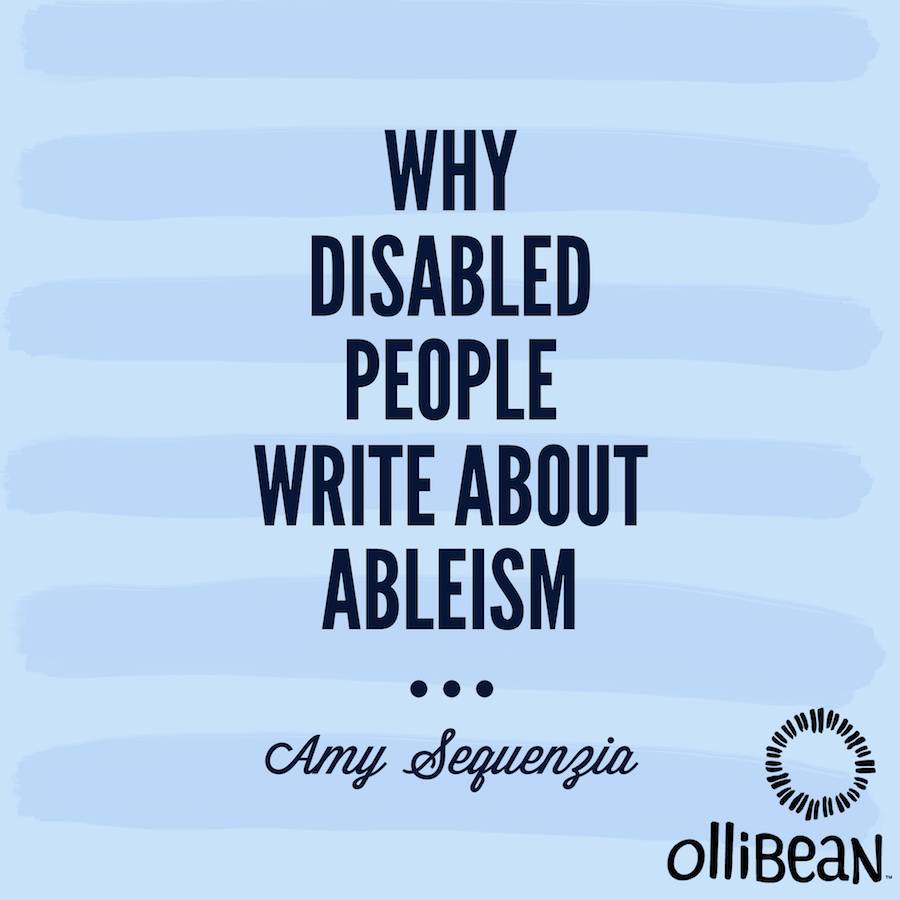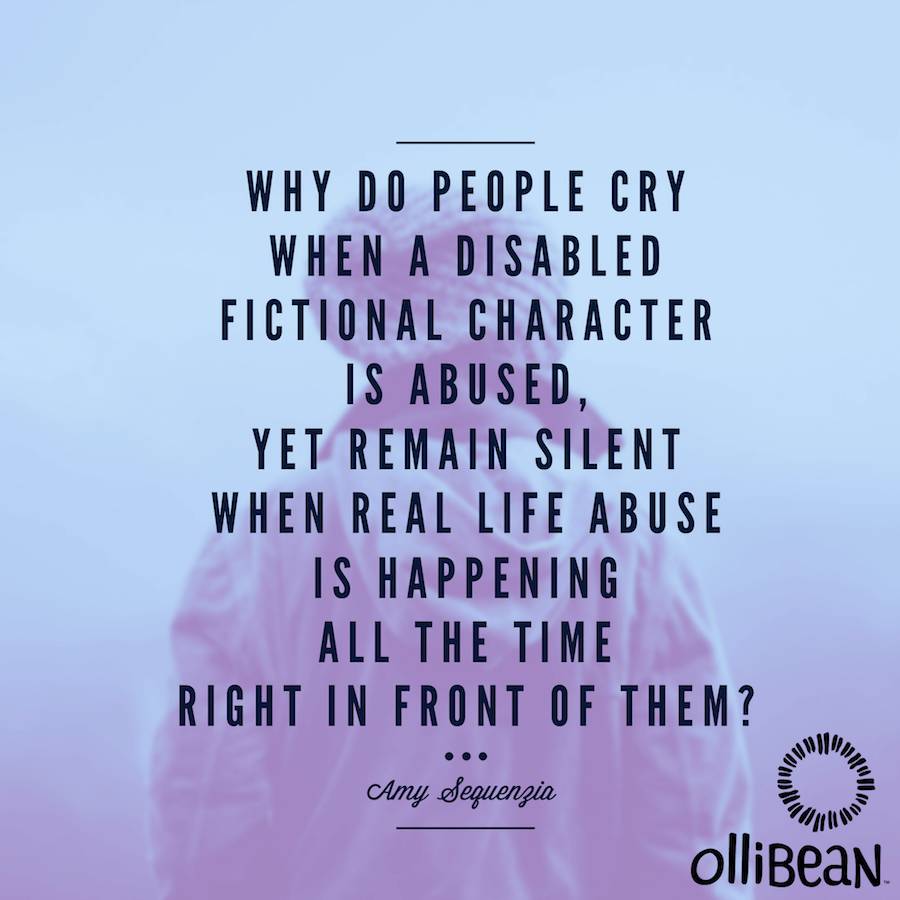
Are You Paying Attention When Disabled People Write about Ableism?
When I, and other disabled people write about ableism, we don’t do it because we like the topic. We do it because we DON’T like it but experience it every day. We do it because we are protesting the many ways we are objectified, dismissed, ignored and dehumanized.
I don’t speak for all disabled people but I believe most would agree with my statement above.
Forms of Ableism
There are very obvious forms of ableism, from inaccessibility, to inspiration porn, to denial of rights. There is also the ableism that might not affect all disabled people directly, but that creates a “normalization of ableist attitudes” that are simply a generally accepted violation of our human rights. What affects my community, affects me.
If you don’t experience ableism, or if you are not someone who has learnt to see when ableism is happening, I will give you some examples of very damaging ableist attitudes that happen all the time. You might be part of this form of oppression and silencing and not even know it. I hope you give this some thought.
Example 1:
Some organizations and some people, with the support of governments, the Pope and the United Nations, insist that there is an “urgent need” to find the “cause” of autism, instead of insisting on the need to find better ways to accommodate and support Autistics. As a result, we are seen as a plague to be eradicated.
Do you find the word “plague” too harsh? Why, then, the “urgent need” to find a genetic marker? How would this help Autistic people living now? Do we have so little value?
“Like a Plague” is how ableist attitudes make us feel.
The final goal of this specific genetic research is to cleanse humanity of “undesirable characteristics”. If autism is referred to as a disorder, and disorders are undesirable, the final goal is to make sure we cease to exist.
This is called Eugenics.
Example 2:
The growing support for infanticide of disabled children, for euthanasia of disabled people, and the general media support for murderers of disabled people, when the perpetrators are parents (promptly turned into heroic caregivers who “just snapped” under the pressure of living with a “severely disabled” child).
If you don’t know how often these atrocities happen, and how much support these proposals get, it is because you are disconnected from the disability world. They are all too common.
Example 3:
I will use two posts, one from a disabled blogger , the other from a fan of my favorite TV show, X Company. They can help you better understand this example.
The point is, fictional disabled characters, even when portraying real life events, receive all the compassion, understanding and empathy. As soon most viewers meet real disabled people though, all the empathy and understanding is gone. Note: pity is not empathy, nor acceptance.
Why else would someone feel so outraged when a fictional character is locked up in an institution, but remain silent when so-called reputable media organizations promote “Modern Asylums” (as published by the New York Times) as the best, if not only viable, solution for the lack of services that can “help” disabled people?
Why else do people cry when a disabled fictional character is abused, yet remain silent when real life abuse is happening all the time right in front of them? Just pay attention to how many schools treat disabled children and how electroshock of disabled students is lawful and defended in Massachusetts.
I wonder how many of my fellow X Company fans meet a real life adult with Down Syndrome and think: this could be Ulli (a character in the show) if the Nazis didn’t think disabled people were useless eaters who should die. I wonder if the show’s fans feel respect or pity for that adult who was a child just like Ulli. Reminder: Respect = yay! Pity = nay.
How many of the fans see a neurodivergent person – like the adored neurodivergent character Alfred – having a meltdown because of sensory overload and think the person is just “acting out”, or “a brat”?
Also related to X Company: I wonder how many of the fans know about the sterilization program and the eugenics practices from long ago, developed in the United Sates and used by Hitler, and protest when such practices are advertised, today, as the “best practices for disabled people”. It happens.
Example 4:
Please, read this Storify by Alice Wong. It relates to an article recently published in the New York Times Magazine. The Twitter hashtag is #AbleistViolence
The article “asks” if it is ethical for parents to stunt the growth of disabled girls (It doesn’t really “ask” because it is very biased, the only voices are of parents who ignore their disabled daughters’ body autonomy)
I agree completely with everything Alice Wong tweeted. My questions:
Why aren’t disabled people deserving of the same respect and dignity as non-disabled people? Even disabled people whose parents claim cannot make choices still deserve human respect.
Why don’t journalists think of our perspective when writing the articles instead of defending their bias by blaming lack of printing space?
How is an unnecessary surgery going to make the life of those girls any better or safer, and why are the caregivers’ lives and comfort more valued?
See how disabled lives are seen as not really important?
After these examples, can you see that everything about us, and our lives, is determined by how comfortable non-disabled caregivers, and a non-disabled society will feel?
What is about us, should be with us.
The reality is that we are turned into props for the imaginary, utopian perfect society.
Diversity is usually seen as a necessity for human growth, and for a more understanding world but when diversity is related to disability, the goal seems to be: get rid of disabled voices, and of disabled lives.
That’s ableism. It’s pervasive, it’s embraced, and it’s growing.
Are you paying attention, and how much do you care about it?







Right on all points made. Until the neurotypical society changes, how are those with any form of disability expected to do well (and they can, given half a chance)? When is this discrimination going to stop? When are those in charge going to call out ableist behaviour? If someone were to make a racist, sexist or homophobic comment, hell would be raised. Where’s the outrage for ableism? Something has to change. Because it isn’t right.
^This.
This is a great article. Honestly though I’m totally blind and have psychiatric disabilities I never really heard of ableism until a month ago when meeting some new friends part of the cross disability community. Since then I now feel like I am actually part of a community that gets the things that happen every day that hurt myself and others. I am grateful to meet new friends and make important connections and hopefully work through friendships with nondisabled people and more interactions with people with all disabilities, not just my own to stop these harmful ways of thinking and acting.